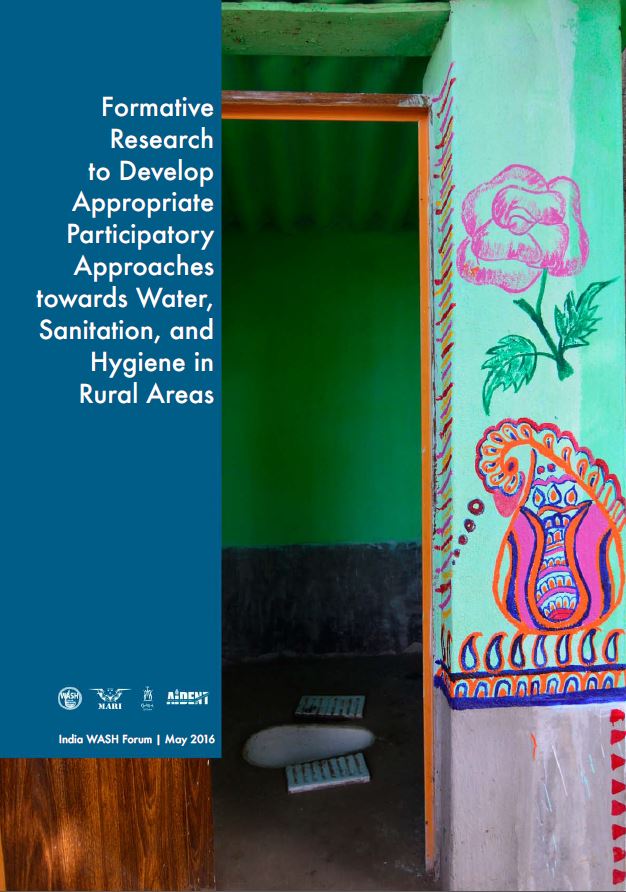Formative Research to Develop Appropriate Participatory Approaches towards Water, Sanitation, and Hygiene in Rural Areas
 |
rapport May 2016 ; 62 pages
Aut. Kapur Depinder &
Ed. India WASH Forum - Delhi
Téléchargeable sous format: PdF
Téléchargeable chez l'éditeur
Page de présentation d'un éditeur
Abstract:
Most sanitation promotion approaches are only partially successful in providing short term increases in sanitation coverage and usage. BCC messages designed as marketing interventions often fail to address deeper underlying causes of resistance behind people’s reluctance to adopt improved and safe sanitation and hygiene. This study was undertaken with the objective of understanding perceptions, barriers, and motivators for improved sanitation behavior in rural India. Rural communities are not homogenous; they are also very divergent across the mountains, plains, deserts and coastal areas of India with mixed caste, tribal and Dalit composition. The study investigates how different disaggregated sets of people respond to the same questions on barriers to sanitation – women, men, adolescent girls and boys, children, old and infirm, tribal and non-tribal communities, village level functionaries, etc. The study was conducted in Gujarat, Telangana, and Jharkhand. An intensive field research was undertaken in nine villages between July and December 2015.
Public-Cible:
Mots clefs: |
ATPC Assainissement Total Piloté par la Communauté (CI) (DT) (OP) (ope) , hygiène (CI) (DT) (OP) (ope) |
Pays concerné: |
Editeur/Diffuseur: |
|
India WASH Forum - Delhi - Inde |
En cas de lien brisé, nous le mentionner à communication@pseau.org